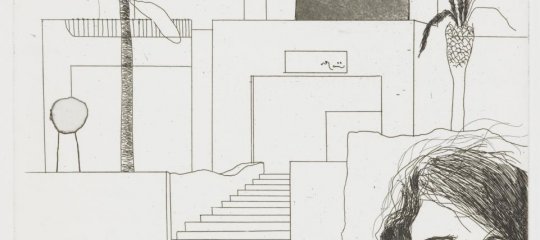ΑΥΣΤΡΑΛΙΑ: Η έκδοση βίζας παραμονής και το πρόβλημα της έκδοσης υπηρεσιακού διαβατηρίου
Γιώργος Θανόπουλος
ΑΥΣΤΡΑΛΙΑ: Η έκδοση βίζας παραμονής και το πρόβλημα της έκδοσης υπηρεσιακού διαβατηρίου για τους αποσπασμένους εκπαιδευτικούς
'Ενα ευχάριστο γεγονός που προήλθε από τη χώρα υποδοχής με κάνουν να γράψω πάλι προς ενημέρωση των ενδιαφερομένων. Βέβαια, σε τέτοιες περιπτώσεις, για τον Έλληνα που ζει στο εξωτερικό, οι συγκρίσεις με τις ελληνικές υπηρεσίες είναι αναπόφευκτες. Τώρα στην Αυστραλία είναι κατακαλόκαιρο, κάτι σαν Αύγουστος στην Ελλάδα. Όμως εδώ δεν άκουσα τη φράση "τα μπάνια του λαού". Ο λαός εργάζεται, όπως και οι υπηρεσίες, ιδιαίτερα οι κρατικές, και οι πολίτες δεν ταλαιπωρούνται. Προς απόδειξη το παρακάτω γεγονός.
Όπως έχω ήδη γράψει, είμαι με απόσπαση στο Πανεπιστήμιο του Σύδνεϋ. Το Δεκέμβριο 2010 παρατάθηκε νόμιμα η απόσπασή μου για το 2011.
Στις 7 Ιανουαρίου 2011 υπέβαλα ταχυδρομικά στην Υπηρεσία Μετανάστευσης της Αυστραλίας, στην Καμπέρα, τα δικαιολογητικά για τη νέα βίζα παραμονής. Μέσα σε σύντομο διάστημα, στις 20 Ιανουαρίου 2011 (!) έλαβα ηλεκτρονικά τη νέα βίζα. Κανένα τρέξιμο σε γραφείο, καμμιά ταλαιπωρία. Ούτε καν χρειάζεται να μεταβώ σε κάποιο γραφείο για να τοποθετηθεί επίσημα κάποια σφραγίδα στο διαβατήριο. Υπάρχει ο ηλεκτρονικός κωδικός και με αυτόν μπορείς να τακτοποιηθείς όπου και αν βρίσκεσαι. Μάλιστα οι Αυσταλοί δεν έλαβαν υπόψη - και καλώς - ότι το υπηρεσιακό μου διαβατήριο έληξε στις 18 Οκτωβρίου 2010 (!). Η νέα μου βίζα ισχύει ως τις 31 Ιανουαρίου 2012 και ως την ημερομηνία αυτή επιτρέπει τα ταξίδια από και προς την Αυστραλία χωρίς κανένα περιορισμό.
Το αντίθετο συμβαίνει με το υπηρεσιακό μου διαβατήριο, που είναι αναγκαίο για την παραμονή μου και τις μετακινήσεις μου. Την αίτηση την υπέβαλα βέβαια στο Προξενείο του Σύδνεϋ, στις 12 Ιανουαρίου 2011, αλλά η διεκπεραίωση περιμένει την επιστροφή της υπαλλήλου από την άδεια! Η αποστολή των δικαιολογητικών στην Ελλάδα είναι περιπετειώδης. Κάποια στιγμή θα φθάσουν στο ΥΠΕΞ και εκεί οι αρμόδιοι θα καθορίσουν τη λήξη του νέου διαβατηρίου. Το 2010 την καθόρισαν για τις 18 Οκτωβρίου 2010. Τους μπέρδεψε φαίνεται η φράση στην απόφαση της παράτασης "για το ακαδημαϊκό έτος 2010" ή μάλλον τοποθετούν την Αυστραλία στο Β. Ημισφαίριο- όλα μπορεί να τα υποθέσει κανείς.
Τώρα το τι θα γίνει το 2011, ένας θεός ξέρει. Την αίτηση για το νέο διαβατήριο την υπέγραψα, αλλά αντίγραφο δεν επιτρεπόταν να πάρω, ούτε αναγράφηκε στην αίτηση η λήξη ισχύος του νέου διαβατηρίου. Αυτά όλα θα γίνουν ερήμη μου. Αναμένω με αγωνία να δω αν στο νέο υπηρεσιακό διαβατήριο ληφθεί υπόψη ότι η βίζα μου λήγει στις 31 Ιανουαρίου 2012 και ότι αυτό θα πρέπει να ισχύει τουλάχιστο ως τον Ιούνιο του 2012, για να είναι χρήσιμο για ταξίδια από και προς την Αυστραλία ως τη λήξη της βίζας.
Έτσι στην "ευρωπαϊκή" Ελλάδα του 21ου αιώνα η έκδοση υπηρεσιακού διαβατηρίου για τον αποσπασμένο εκπαιδευτικό στη μακρινή Αυστραλία έχει καταντήσει υπόθεση με πολύ suspense και με μεγάλη ταλαιπωρία, ενώ το ΥΠΠΔΒΘ, πέραν από την κοινοποίηση της απόφασης στο ΥΠΕΞ, αρνείται να παρέμβει και να δώσει τις κατάλληλες διευκρινήσεις στους αρμόδιους! Η έκδοση ενός κανονικού 5ετούς διαρκείας υπηρεσιακού διαβατηρίου θα ήταν η σωστή λύση, αφού οι αποσπάσεις στα ΑΕΙ εξωτερικού έχουν συνολική διάρκεια οκτώ χρόνων, για να σταματήσει αυτή η πολυδάπανη και χρονοβόρα διαδικασία της έκδοσης υπηρεσιακού διαβατηρίου ισχύος ενός έτους ή μερικών μηνών. Η αξιοπρέπεια ενός κράτους εξαρτάται σε μεγάλο βαθμό και από τις υπηρεσίες που προσφέρει και από τα επίσημα έγγραφα που χορηγεί.
Σύδνεϋ, 25 Ιανουαρίου 2011
- Εμείς /
- Εισέλθετε στο σύστημα για να υποβάλετε σχόλια











